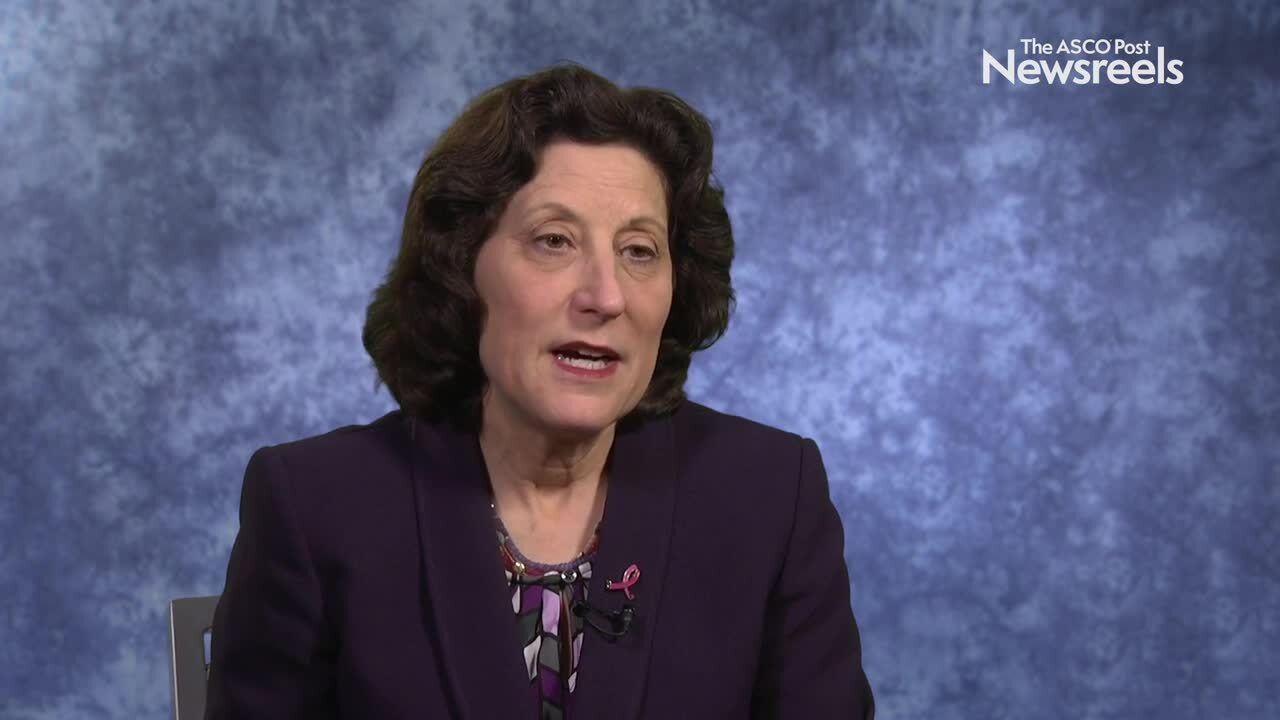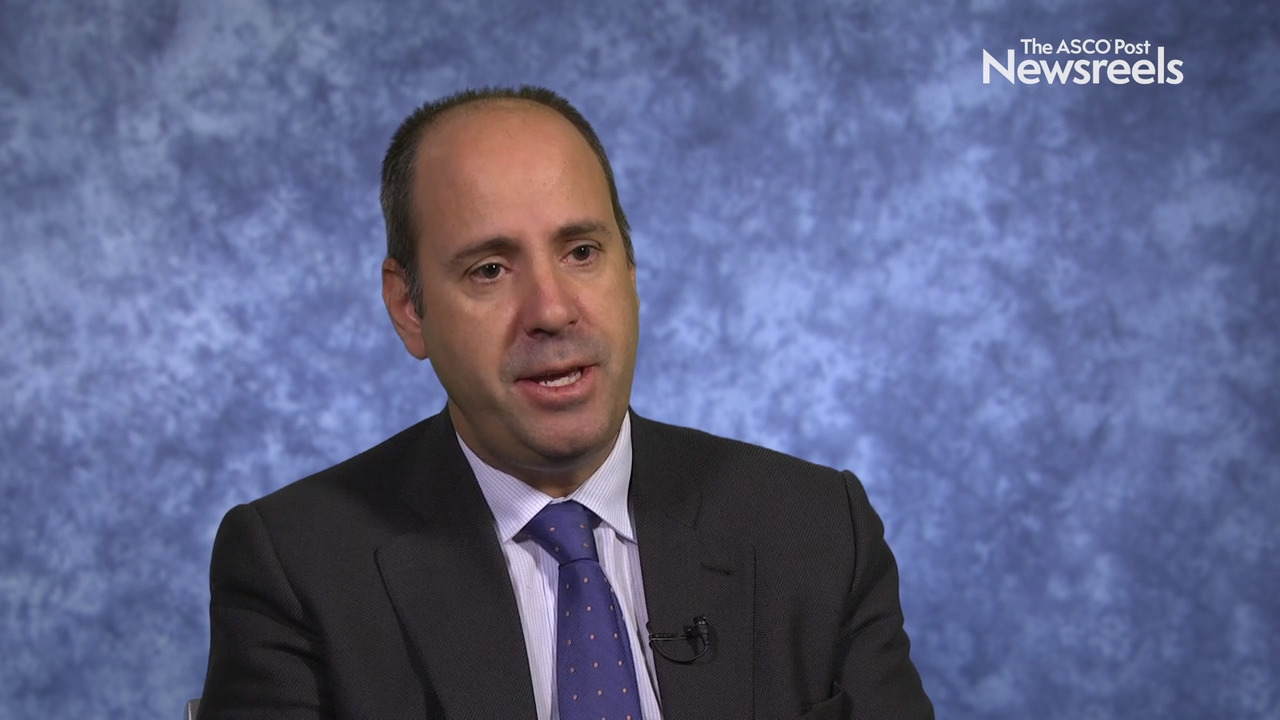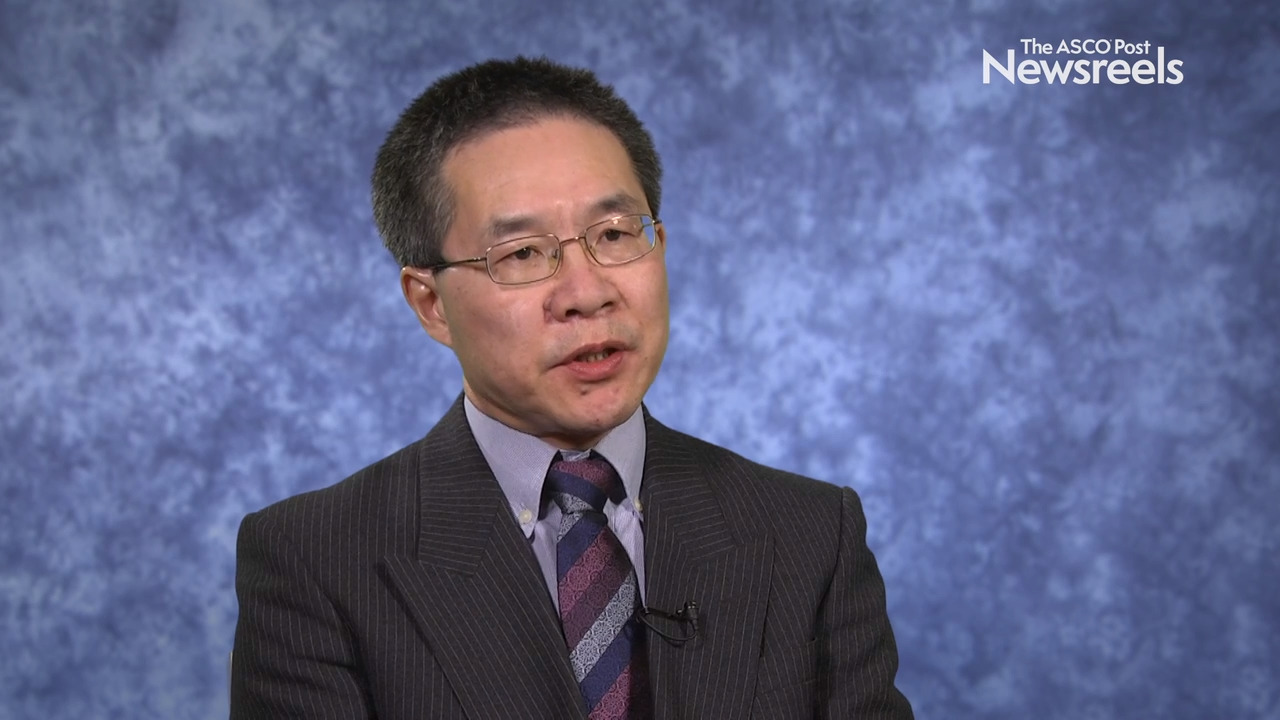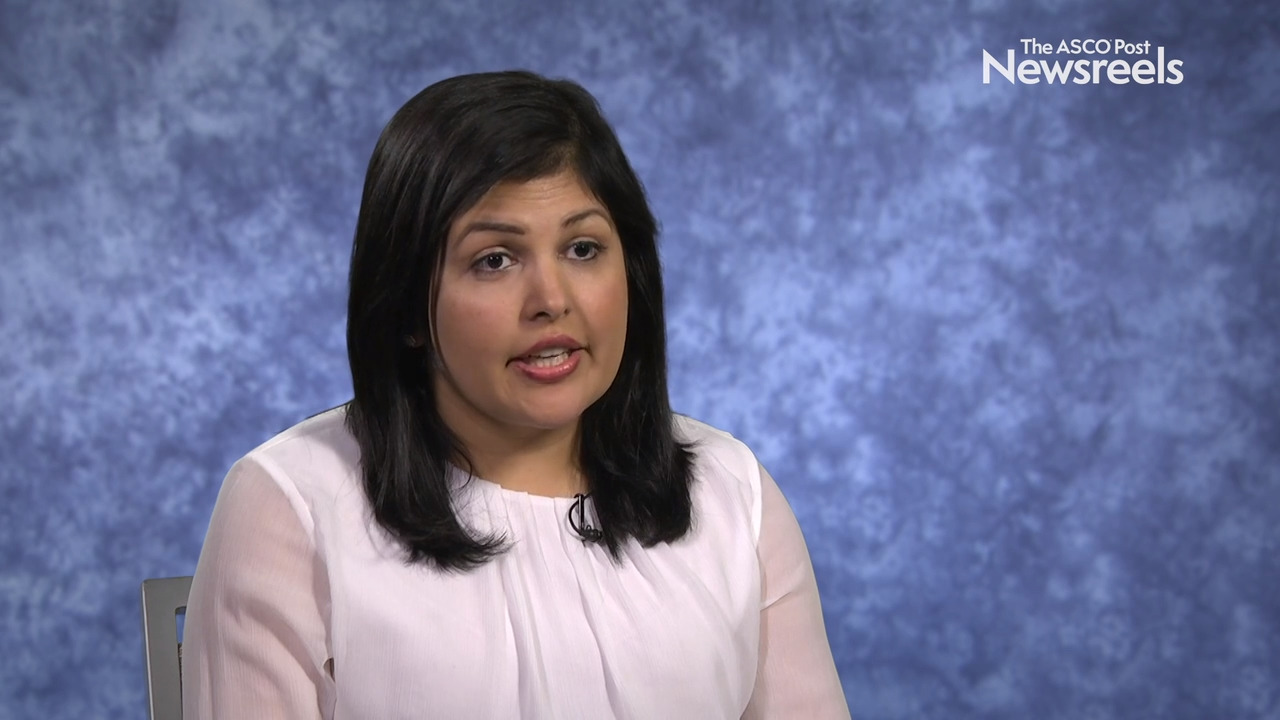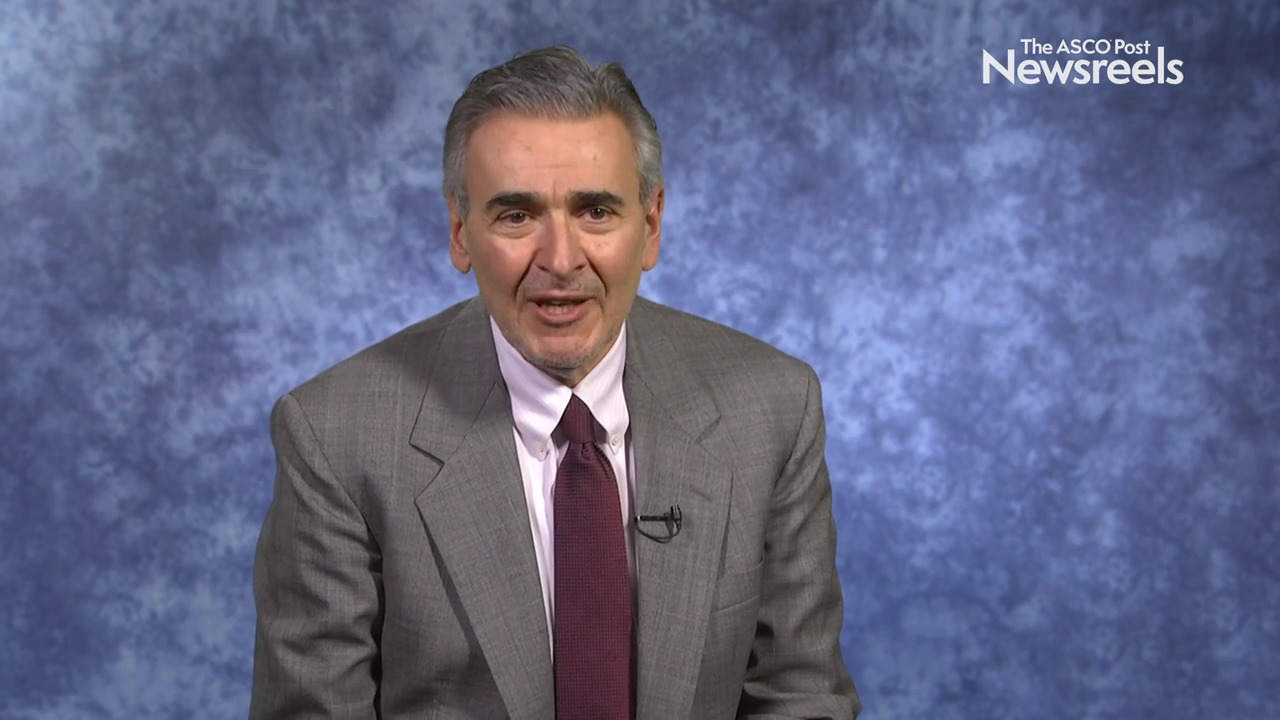Miguel Martín, MD, PhD, on Metastatic Breast Cancer: PEARL Trial on Palbociclib Plus Endocrine Therapy vs Capecitabine
2019 San Antonio Breast Cancer Symposium
Miguel Martín, MD, PhD, of the Gregorio Marañón Institute and GEICAM, discusses phase III study findings that showed no improvement in progression-free survival with palbociclib plus endocrine therapy vs capecitabine in patients with hormone receptor–positive/HER2-negative metastatic breast cancer whose disease progressed on aromatase inhibitors—although the drug combination was generally better tolerated than capecitabine (Abstract GS2-07).
Hope S. Rugo, MD, of the University of California San Francisco Comprehensive Cancer Center, discusses a retrospective analysis on the effectiveness of the VENTANA PD-L1 SP142 assay, the Dako 22C3 assay, and the VENTANA SP263 assay as predictors of response to atezolizumab plus nab-paclitaxel in patients with metastatic triple-negative breast cancer (Abstract PD1-07).
Javier Cortes, MD, PhD, of the IOB Institute of Oncology, discusses study findings that suggested pembrolizumab offered a prolonged survival benefit compared to chemotherapy for a subset of patients with previously treated metastatic triple-negative breast cancer. In the trial, high tumor-infiltrating lymphocytes were significantly associated with better clinical outcomes with the checkpoint inhibitor.
Hongchao Pan, PhD, of the University of Oxford, discusses an analysis of 86,000 women in the Early Breast Cancer Trialists’ Collaborative Group database, which showed that the risk of distant recurrence 20 years after a diagnosis of node-negative, estrogen receptor–negative early-stage breast cancer in women who discontinued endocrine therapy at 5 years is likely to be about a third lower now than in his group’s previous report (Abstract GS2-04).
Rashmi K. Murthy, MD, of The University of Texas MD Anderson Cancer Center, discusses data on the efficacy and safety of tucatinib, trastuzumab, and capecitabine, a treatment regimen under investigation for patients with advanced HER2-positive metastatic breast cancer refractory to standard-of-care regimens (Abstract GS1-01).
Joseph Sparano, MD, of the Montefiore Medical Center, discusses three challenges:
- How can gene-expression profiles and other diagnostic tests be used to guide the use of adjuvant systemic therapy?
- Is it time to reappraise active surveillance?
- Are there diagnostic and therapeutic strategies that can identify tumors at highest risk of metastasis, and novel therapies that can block the spread of disease?
